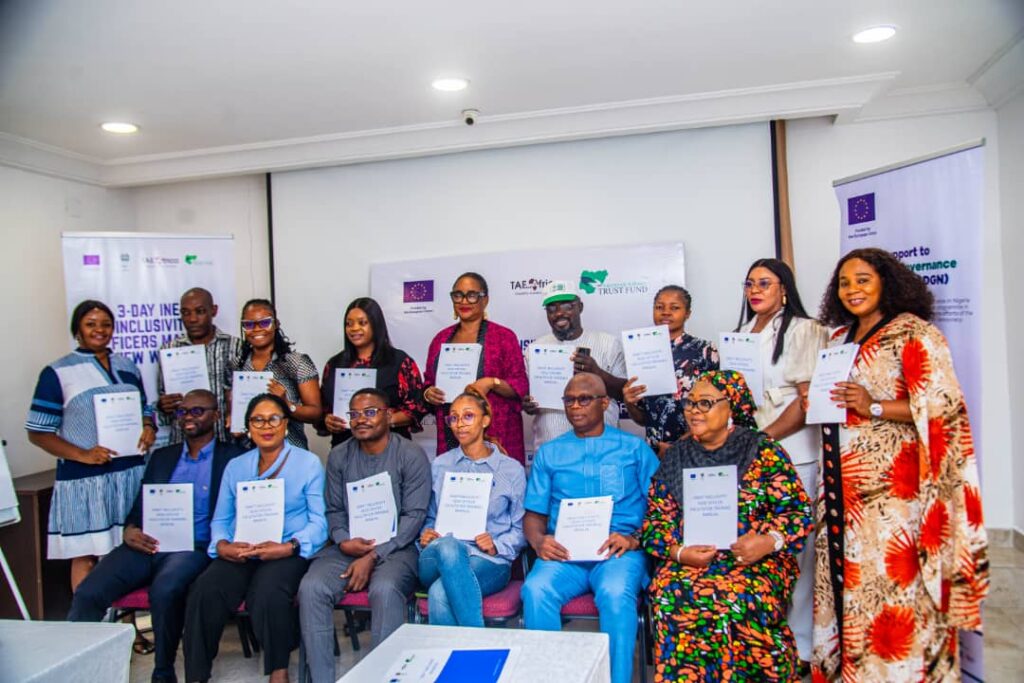The European Union Support to Democratic Governance Programme (EU-SDGN) has supported a 3-day training of desk officers of the Independent National Electoral Commission (INEC) with specific targets on ensuring gender and disability inclusion in Nigeria’s electoral process.
The EU-SDGN aims to develop a comprehensive training manual for INEC inclusivity officers to effectively address and manage gender and disability-related issues that may arise during elections.
The workshop which was held in Abuja, provided an opportunity for relevant stakeholders to review INEC’s inclusivity manual and identify gaps and areas that need to be improved upon.
The Director of the Gender and Inclusivity Department, INEC, Lakunuya Dorathy Bello who described the workshop as timely and important, added that it would help the Commission to discharge its mandate to promote free, credible, transparent, and inclusive elections across the country.
She said, “The manual will assist the Commission to build the capacity of its desk officers to enable them to serve the interest of inclusivity in various states. The manual will enable them to perform optimally at their duties, ensuring that marginalised groups are adequately represented during elections.”
While lauding the continuous efforts of the EU to support capacity building for the staff of INEC, Bello stated that the workshop helps participants to improve their skills and experience, even as time, laws, and people evolve.
Programme Manager, Nigerian Women Trust Fund (NWTF), Vaneza Gregory, said the workshop was necessitated as a result of the gap in inclusivity data for women and Persons with Disabilities (PWDs).
“We realised a gap from the inclusivity data made available by INEC, and there was a need to address the gap in data produced in the areas on inclusivity data for women and PWDs.”
According to Gregory, 40 INEC gender desk officers drawn from the 36 states would be trained through the programme over a period of one week, to ensure they were adequately equipped to effectively address and manage gender and disability-related issues.
She further disclosed that the handbook provides an overview of the legal and policy frameworks, international agreements, and practical strategies to ensure that all citizens, including women and PWDs, can participate fully in elections.
Assistant Programme Manager, TAF Africa, George Anwayi, added, “There has never been, before now, a comprehensive training manual to ensure the inclusion of marginalised groups as far as INEC is concerned. With this activity, we are able to work towards the mainstreaming of women and PWDs in electoral processes.
“There is a need for INEC staff to understand inclusivity comprehensively. This manual will therefore help to train INEC’s desk officers, who will, in turn, ensure that all marginalised groups are properly mainstreamed in all electoral processes.”















